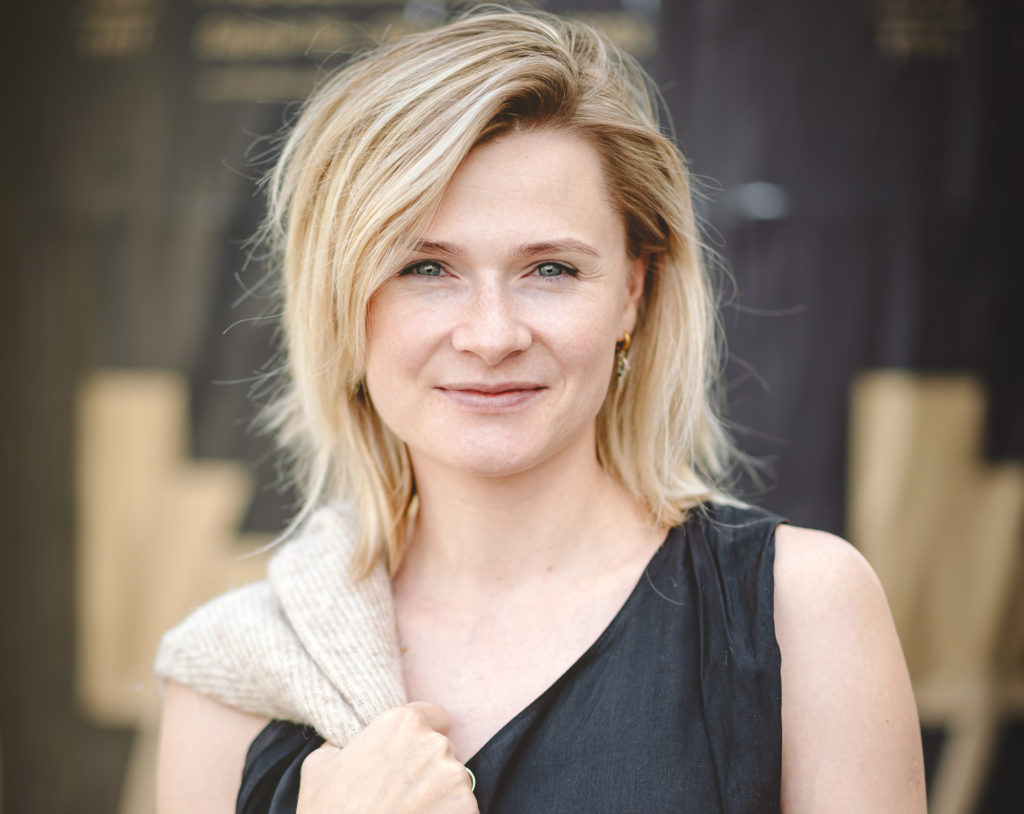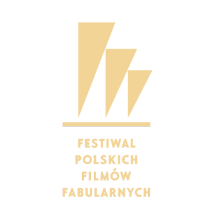Short films, they are a real talent mine – an interview with Agnieszka Dziedzic, Chairwoman of Short Film Competition Jury

Photo T.Kamiński
There’s this longing for original stories, but we, as creators, don’t really know how to tell them – an interview with Agnieszka Dziedzic, chairwoman of Short Film Competition jury
Mateusz Demski
Mateusz Demski: This year, together with Olga Bołądź and Michał Szcześniak, you’ll judge 25 films in a short film competition. I’m assuming this isn’t something new for you, considering your experience with production – what do you think of this format and its significance?
Agnieszka Dziedzic: To be totally honest, I’m glad that Joanna Łapińska proposed me for this competition. As a producer, I’ve been lacking time to keep up with short films and it’s becoming increasingly more difficult for me. I used to think I’m in close contact with young creators, It’s not that long since I’ve been one myself. I was involved in different student productions, but lately I’ve noticed that as the time goes by I’m loosing my connection to the world of real debuts – short films. I don’t know how to say it not to be trite, but they’re a real talent mine. They’re a way to meet young, new creators, who can give something fresh to the world, and who are about to debut.
Do you have a personal criterium you’re going to follow while choosing this year’s winner? Every competition has its own rules but it’s all about art, something unquantifiable. There are no deciding millimeters like in a long jump or a sprint. And short films are different from feature-length ones.
That’s true, you can’t judge short films the same way you do feature-length ones. The dramaturgy in them is totally different, and as a viewer, there are different things in them I’m interested in. I’d like to see something new. I expect short films to surprise me. When you watch a feature film, you follow the plot, the film as a whole. Here, there’s more room for experimentation, for trying things out. And I mean both my expectations for the competition and my experience from when I participated in creating them. A good, vibrant étude doesn’t have to tell a story in a classic sense. With a short film you can make a name for yourself with some daring moves Creators have more freedom. They’re not limited by the expectations od the market and the audience. Or the fact that the films are financed by someone and have to break even.
I have to ask, how much are these experiments prevalent in short films? When I watch them at the festivals, I rarely see any deviations from the classic narration. Well known plots seem to dominate.
They do break the mould sometimes and the short films can be surprising. I try to follow them as much as I can and single out the most interesting creators, the ones worth delving into feature-length project with. But we do live in a world dominated by the classic cinema. The market right now is harsh for those who wish to experiment, and grants are given out to market entities, the ones that expect somewhat predictable films. For a truly authorial debut, a short films gets you more trust, I think. It’s definitely an argument.
You say the market is harsh now, and what I understand by it, you’re hinting at a discussion which followed the strikes in Hollywood. A discussion about artificial intelligence and unregulated conduct of streaming services, is that right?
I guess it’s a little bit of all of that, but artificial intelligence and post-pandemic crisis – these are the outside factors. But what’s worth talking about is what’s right there in our grasp. I think there’s a broader cultural crisis affecting what films we want to make and see in the first place. Many uninspired, calculated cash-grabs emerge. It’s because we’re too cautious. The market forces us to act this way. We’re getting more sequels, prequels, seventeen productions with the same title, with only the number next to it changing. We feel like they are a safe, risk-free move, but the audience is stopping watching them anymore. Many of them are flops.
A few days ago I came back from Venice where I felt exactly that. Nothing in the programme struck me as extraordinary. The films seemed bland, flat. Safely told classic stories were the most prevalent. People left the festival feeling bored, ready to forget the films they saw there.
Or maybe you forget them the moment you leave the cinema. That’s the problem. People can’t remember which film received the Oscar last year, if the Oscars are at all a benchmark for quality, that is. It’s about exactly what you said – there’s too much boring, safe cinema nobody cares about. The safe film formula stops paying off. There’s this longing for original stories, but we, as creators, don’t really know how to tell them. It’s the challenge we’re facing right now. I believe the person who dares to do the unexpected and breaks the mould, will win here. And I honestly believe a vibrant short film is the way to go. It affords the creator some trust, lets them venture into feature length and stand their ground.
As a producer, what are you looking for in such times? As I go through your projects from last year, it’s an eclectic mix: Dangerous Men, an international co-production Delegation and Radical Move, which is a documentary about the theatre troupe Workcenter founded by Jerzy Grotowski.
As a producer I look for creative cooperation and vibrant stories. It’s hard to pinpoint a common trait for these films. They were wildly different projects. Dangerous Men is a film in the genre cinema convention, but with the ambition to tell the same old story in a fresh formula, using new character types. Delegation, on the other hand, is a story of a real thing that happens, a story strongly resonating with the director. It was a personal film for him and much of our efforts as producers was aimed at giving him the opportunity to tell this story the way he wishes to. Then Radical Move was a great effort of working with the living characters. It’s a documentary that deals with difficult and personal issues for those involved. It’s also an attempt to find – in these highly personal stories – a synthesis of what we’re going through as a generation.
We’ll see Delegation in Gdynia this year. A film about Israeli teenagers on a trip through Holocaust memorials. The project was a co-production and it leads me to another topic that is talked about more and more in Gdynia – so-called transnational cinema. Last year the main award went to Silent Twins, a film developed in cooperation with USA and UK. Maybe it’s a worthwhile direction during the aforementioned crisis?
It’s only possible when the stories resonate above borders. International co-productions are difficult, but incredibly satisfying, when you carry them over the finish line among the difficulties of international communication. Delegation created a curious arrangement because the story we told, just like the capital H history – meaning the history of Holocaust and Second World War – connected the three countries responsible for its production. It’s not a film about the war, but about how it shapes our memory. It’s about how to talk about Holocaust. That’s why we felt the film should be co-produced by producers from Poland, Germany and Israel. It made the process organic. It naturally resulted from what a film needs creatively but also in a sense of its cultural meaning. I believe in these natural co-productions, that aren’t forced upon the project, but naturally arise from its needs.
When you speak of Holocaust stories, I automatically think Jonathan Glazer’s The Zone of Interest, a film that won the Grand Prix in Cannes this year, also of Polish production. It’s an example of how the stories told so many times in cinema can be shown in a different light, with a new language and a new structure.
I think we need topics we care about. We need films that aren’t – like you said – bland and flat Films that aren’t just another copies. We need a cross between the genre way of storytelling and the topics that move us profoundly. It’s a fusion that will bring forth a new quality.
Agnieszka Dziedzic – Founder of Koi Studio, at present – creative producer at Aurum Film. For her first film Little Crushes (dir. Aleksandra Gowin, Ireneusz Grzyb) she won the Best Debuting Producer Award. Graduate of the prestigious training programmes: EAVE, EAVE Puentes and ACE. In 2023 she was nominated for the Female Voice award granted during the Mastercard OFF Camera festival, and she received Best Producer award at the Krakow Film Festival for the Radical Move documentary (dir. Aniela Gabryel). Her most recent films include: Dangerous Men (dir. Maciej Kawalski), Delegation (dir. Asaf Saban) and a co-production Stepne (dir. Maryna Vroda) awarded at the 2023 Locarno IFF.


